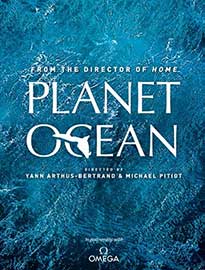Troubled Waters
In the midst of widespread pollution and the ill effects of climate change, we tend to lose sight of another factor that threatens the vitality of our oceanic ecosystem: overfishing. Troubled Waters examines the long-term economic and environmental ramifications of a rapidly dwindling fish population.
Our romanticized image of a modest working-class fishing boat sailing from port is a fading remnant of the past. Today, corporate-owned super trawlers lurk the seas in search of their next massive marine haul. These tankers are designed to carry as much as 200 tons of fish per day. Many species are overexploited and in danger of extinction. The population of Pacific jack mackerel - a species once thought indestructible - has decreased by as much as 90%.
The largest fish have been the first victims of overfishing. Now these species are gone, and the industry is left to pick through a smaller to medium sized inventory. This practice has fundamentally altered the food chain.
The fishing industry is a massive, multi-national operation which survives in large part on taxpayer funded government subsidies. Demand for seafood is so great that entities like the European Union have been forced to look outside their own borders for fresh stock. They form bilateral agreements to fish in the waters of developing nations in exchange for sizeable financial donations.
Through their investigation, the filmmakers attempt to unravel a tangled weave of poor regulations, limited accountability, questionable sources of funding, and an ecosystem that hangs in the balance. These efforts are supported by a range of interview subjects including ecologists, conservation activists, and professional fishermen.
Beyond its clear and thought-provoking diagnosis of the crisis, the film also offers a number of options that can effectively curb the overexploitation of fish. These include increased restrictions on the periods of time fishing crews can operate in regulated seas, regulations on the type of equipment they employ, and the establishment of marine safe zones that deny all fishing activities until the population of certain species have a chance to regenerate.
Perhaps the most meaningful of the film's achievements is its ability to contribute to a more informed and conscientious consumer culture.
Directed by: Matthew Judge




Try NOT eating fish AT ALL to save our oceans and coral beds as well as reducing all types of health issues related to eating meat and take on a whole food plant base lifestyle.
exactly... they didn't mention the simplest solution... NOT buying seafood will decrease the supply of fish.
Excellent
This is a perfect documentary! it gives so much valuable information and constructive solutions! Congratulations to the authors and hopefully they will make more films!
(...what are you saying...?)
...I believe it is "mumbo-jumbo"....
Thank you for your support! We love you too!
Intelligent MAMBO JAMBO to fill heads with another bunch of useless numbers and INFORMATION
WE ARE NOT PREDATORS ! That has NEVER been our place on Earth,
We are PLANT, NUTS, SEEDS, ROOT, BERRY, MUSHROOMS, FLOWERS, LEAVES EATERS,
IS This NOT Enough ???
Being a "PREDATOR" is in the THOUGHTS, and THOUGHTS only, sadly for many
Dangerous Thoughts that harms our living world and other living beings... of a reality bought that is not even our own !
Being Living and Feeling your Own Lives and Create your personal reality, helping to created shared Reality of natural living and beautiful primordial Nature as God, Creator made our world for Everyone equally
Mambo Jambo...? Think it's Mumbo Jumbo!